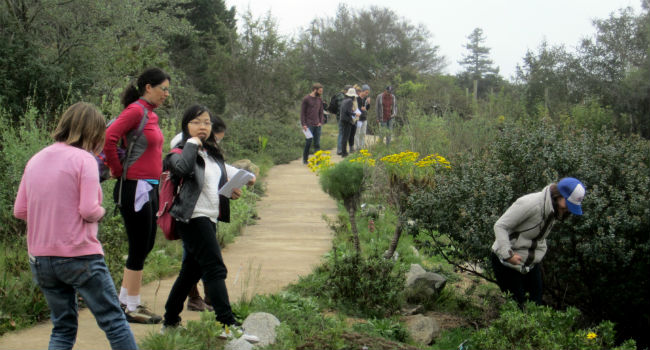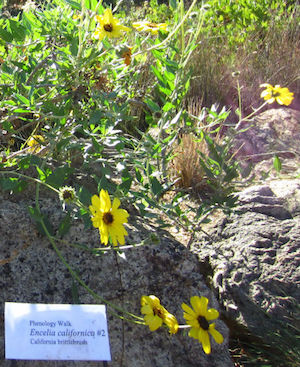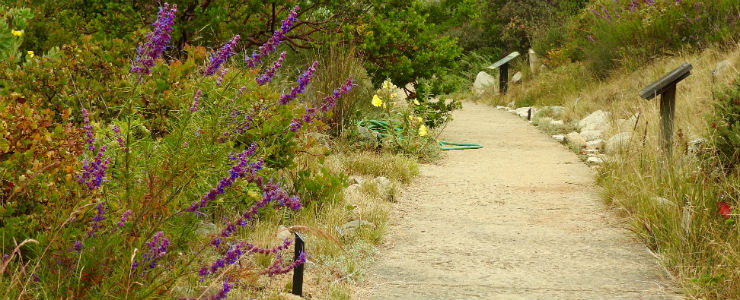Community Science & Phenology

Study the science of the seasons: be a part of a national effort to monitor the effects of climate change.
Phenology: nature’s calendar - phenology is the timing of life cycle events, for example: when plants first bloom, birds migrate, and insects hatch.
Monitoring phenology is important: changing phenology is a key indicator of climate change. It is a hot topic in climate change research. You may have even observed phenology change without realizing it, like if you noticed plants in your garden blooming earlier during warm years.

Q: What is the USA-National Phenology Network?
A: The USA-NPN is an organization that develops standardized protocols for collecting phenology data. Then, researchers, students, volunteers, and community scientists use these protocols to collect phenology data all across the USA. This data is managed by the USA-NPN and is used by researchers, land managers, and policy makers. Also, all the data is available to the public. Visit https://www.usanpn.org for more information.
Q: Why is it important to monitor the same individuals and plots from year to year?
A: By monitoring the same individuals and plots from year to year we can assume that any phenological changes we observe are due to environmental change over time, and NOT due to the location or genetics of the plants.
Q: Why monitor multiple individuals for each species?
A: Scientists require replication to ensure results are consistent. This also accounts for differences due to the locations of the plants.
Q: Why monitor species year-round, even when they are dead or dormant?
A: This is important information too! It provides information about the length of the growing season, like whether plants are dying earlier in the season, or if the dormancy period is longer.
Q: I am using the Nature’s Notebook app and see that some phenophases are not included in the booklet and datasheets provided by the UCSC Arboretum. Why are some phenophases included, but not others?
A: We only included the phenophases that we thought were unambiguous and simplest to record data for. However, if you want to record all the phenophases in your Nature’s Notebook account, please feel free to do so.


